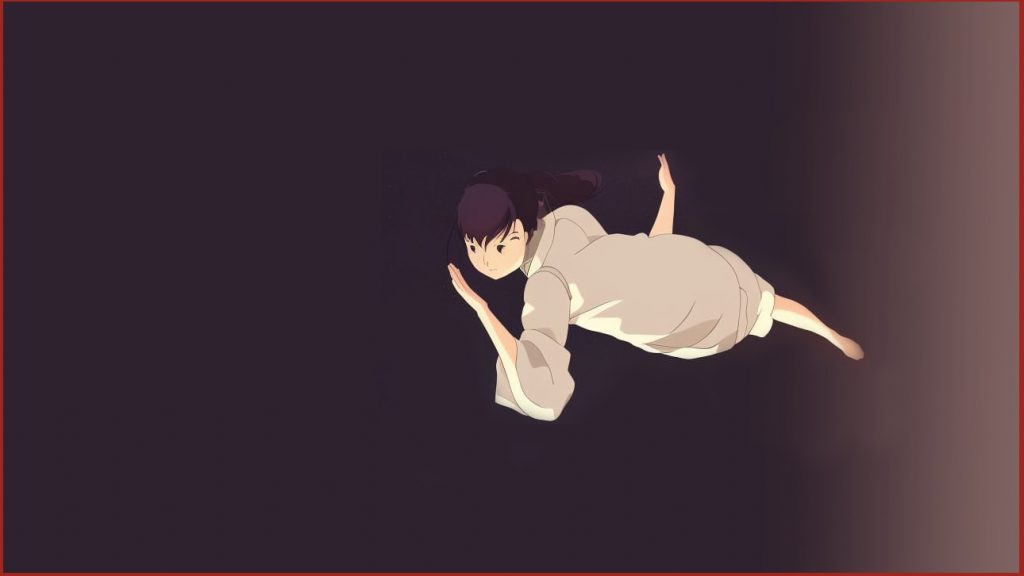Part 2 of the Surrender Series

WAS IT A DREAM?
I woke up from a sound sleep and couldn’t figure out where I was or what day it was. Occasionally, I’ve been similarly disoriented when traveling and sleeping in a new place or when waking from a midday nap and wondering if it’s the next morning. But, this was different. I had no clue about the time, day, or my whereabouts. I attempted to orient myself or simply recall the day of the week.
That’s when I remembered the experience—what some might call a dream–I’d had earlier that morning. It was vivid, visceral, and hard to describe. I was floating in space, and I was not aware of any planets, stars, or lights in the vastness around me. Instead, I had a sense of existing beyond time and space and thus of being untethered to any past or future.
This experience stayed with me for weeks.
BOUNDARIES DISSOLVE
Days later, I realized it reminded me of the state I aim to achieve when I meditate. In this state, I start to detach from my physical experience. The boundaries of where I begin and where I end dissolve. The thinking mind can’t fathom what’s happening, so the mind chatter fades. This awakens in me a sense of freedom, expansiveness, and knowing everything is all right in the universe. Greater awareness emerges along with feelings of pure delight, profound tranquility and stillness, and deep abiding peace.
This is the surrendered state. Maybe you’ve tasted this, or come close, while meditating, doing yoga or qigong, or relaxing in a flotation tank. I long to experience it regularly beyond the meditation cushion. I wonder how to sustain the state of surrender and integrate it into my daily life?
YIN APPROACH TO LIFE
One challenge I have is that, in my perception, the culture I’m immersed in values yang (masculine/fiery) attributes more than yin (feminine/watery). There seems to be a preference in this society for achievement, assertiveness, growth, and competition. We’re success-driven. We’re taught to keep busy, stay productive, and we’re financially rewarded for doing so.
In contrast, the yin approach is quiet, restful, and contemplative, and values being versus doing. There is a preference for quality of life over achievement and success. In our society, people with these characteristics are usually called lazy, unmotivated, and useless. Yin qualities also include softness, gentleness, acceptance, and cooperation. People with these are often labeled as weak.
I have no role model for a more yin approach to life, except for monks, nuns, and similar individuals who are more removed from society. Yet, I feel drawn to stay engaged, to live and work within society.
The truth is we each, no matter our gender, possess both yin and yang energies, and the key for a healthy happy life is to bring these qualities into a state of dynamic harmony. My longing to practice surrender and express (rather than suppress) my yin nature arises from a desire to bring balance to the yang-oriented culture I find myself in.
SURRENDER IS EMPOWERMENT
I’ve also encountered misunderstandings and judgments about the practice of surrender. Many think surrender is about giving up, waving the white flag, going belly up, and saying, “Alright, I give up.” We equate surrendering with submitting and being weak, with losing and giving in. “I’m surrendering to the enemy and giving up my freedom.”
But, what if we knew, despite appearances to the contrary, we’re all on the same team? We’re all part of the great fabric of life? Naturally, we’d let go of any concepts of enemy, battle, winning, and losing. Surrendering would then take on an entirely new meaning.
And, what if we became aware, had even a glimpse, of our eternal nature? We’d realize we have nothing to lose or defend. When we begin to grasp I have a body, but I am not a body, (we each have a body, but are not a body) we recognize the true self, the soul, cannot be harmed.
IF IT’S INSIDE, WE CAN HEAL IT
When we take charge of our inner world and consciously choose how we respond to interactions, we start to become empowered and are no longer able to remain a victim to the world. We can follow the example of Mahatma Gandhi, who, having been jailed and beaten numerous times, was reported to have said “nobody can hurt me, without my permission.”
When we take ownership of our inner reality, we may still feel compelled to take action in the outer world, for example, get ourselves out of an unhealthy relationship or situation, or work within our community or society to make changes. Gandhi exemplified doing just this.
And, when we consciously decide how to respond to people and situations, we may still feel hurt. But the good news is: no matter what has happened to us on the outside, our hurt, pain, and trauma are on the inside. This is good news because if it’s inside us, we can heal it.
COMING HOME TO SELF
These practices are the basis for true empowerment. Once we implement them, we no longer have a need for armor, shields, or weaponry (our defense patterns). We naturally move out of the us-versus-them mindset and away from relating to the world as a battlefield. No longer needing a false sense of power, we now recognize love as the most powerful force in the universe. The act of surrender, then, is ultimately about releasing the attack-and-defend mindset along with the notion there is a self that needs protecting. It’s about coming home to one’s true self.

As usual, you nailed it Thank you for transporting me just to where I needed to be right now with those inspiring words.
Spot on Deb! Beautiful as you are in Spirit, Mind and Body. I will be emailing you separately. Thank you for sharing and spreading your Glorious Light. So Much Love 🥰, Maryanne